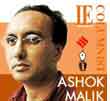By Ashok Malik
March 07, 2010
 Looking back at the M.F. Husain imbroglio, it is worth posing a counterfactual. What if the artist had not decided to take Qatari citizenship and returned to India to face the court cases, the rabble and the drama?
Looking back at the M.F. Husain imbroglio, it is worth posing a counterfactual. What if the artist had not decided to take Qatari citizenship and returned to India to face the court cases, the rabble and the drama?
Would India have forced a 95-year-old artist, one of its best, to make multiple appearances in court or — in an extreme chance — face arrest? It would have invited ridicule. The so-called angry mobs that have spent years disrupting every Husain exhibition — even if these featured paintings completely unrelated to the controversial nude renditions of goddesses — would have become the subject of public hostility. They would have been as isolated as the Shiv Sena a few weekends ago.
Unfortunately, the Husain affair has handed a victory to the wrong sort of people for the wrong reasons. The reference here is to the Hindutva fringe, much of which has now migrated to the Internet. The Internet Hindu has blogged and tweeted and emailed exultantly about the defeat and exile of Husain. In parallel, a new campaign has gathered momentum, centred on a new hate figure: Wendy Doniger.
Doniger is a well-known American academic who, in 2009, released her book The Hindus: An Alternative History. In part, the book is engaging, its treatment of ancient India is detailed — that period is Doniger’s self-admitted strength — but its analysis of modern Hindu currents are perhaps a bit too rushed and dismissive. That aside, there are stylistic angularities that the author is no doubt entitled to but individual readers are free to disagree with.
Doniger has long fought a battle with sections of Hindus for what they feel is her gratuitous attempt to put a “psycho-sexual twist on everything Hindu”. As one observer says, this contributes to “eroticisation and exoticisation of our sacred scripture”. That is an unexceptionable point. It must be said though it is a contestation of some of Doniger’s other work and not quite her most recent book.
Yet, refusing to present a cogent argument, wildcat Internet Hindu groups have instead begun an infuriating campaign against Doniger. It started some weeks ago when the National Book Critics Circle (NBCC) in the United States shortlisted The Hindus: An Alternative History for an award.
Internet Hindu groups — based in America and key locations in India (especially Chennai and Delhi) responded by sending strange letters of protest to the NBCC. One letter said Doniger’s book was replete with deeply meaningful errors and cited this as an example: “On page 536, she claims that Mumtaz Mahal (whose tomb is the famous Taj Mahal) died during the birth of her 13th child. The correct fact is that she died during the birth of her 14th child.”
Another letter said giving the book an award would be “a signal dishonour to 800 million Hindus”, would ignore “a rage [that] is building in the Hindu communities all over” and legitimise “crude, perverted ‘alternative’ narratives”. “Is it too much to expect such a [sic] respect for the Hindus whose work, guided by dharma, accounted for about 33 per cent of the world GDP in the 18th century?” the letter concludes.
It doesn’t end there. Inboxes are being flooded with emails calling for Doniger to be tried under the “United Nations ‘Defamation of Religion’ resolution”. The reference, as it happens, is to a non-binding resolution that was born of efforts by some Muslim countries (led by Pakistan) to frame an international anti-blasphemy law. It was aimed at abolishing any critical appraisal of Islam and was opposed across democratic societies.
Finally, an online petition calls for Doniger’s publishers — Penguin Books India and United States subsidiaries — to withdraw the book. “Doniger makes various faulty assumptions about the tradition in order to arrive at her particular spin,” the petition reads, “… This kind of Western scholarship has been criticised as Orientalism and Eurocentrism. The non Judeo-Christian faith gets used to dish out voyeurism and the tradition gets eroticised.” That final sentence is quoted verbatim.
If the Husain dénouement was tragic, the Doniger episode is turning out to be comic. If a book award judge received these letters, and knew nothing about the context of the controversy, he would probably fear for the author as the victim of a hate group attack. Far from being an unsympathetic student of Hinduism — which is obviously how Internet Hindus see her — Doniger would come out resembling Joan of Arc.
Why are these Internet Hindus worthy of notice at all? There are three reasons. First, a collective of the intellectually inadequate, the professionally frustrated and the plain bigoted, they represent the collapse of Hindu politico-intellectual space into a caricature of the very Talibanism it opposes.
Second, as Hindutva as an idea has contracted in real-world politics, it has become shrill and over-the-top in cyberspace. The Left has its universities, journals and institutional support system. It is a commentary on Internet Hindus that they only have multiple email accounts.
Third, there is a hard question for the BJP. How quickly can it delink itself from Internet Hindus and their offline equivalents? A party that seeks to build broad-spectrum opposition unity in Parliament on governance issues can do without such viral downloads.
Ashok Malik is a Delhi-based political commentator
malikashok@gmail.com
The views expressed by the author are personal.
Source: © Copyright 2009 Hindustan Times
0 comments:
Post a Comment